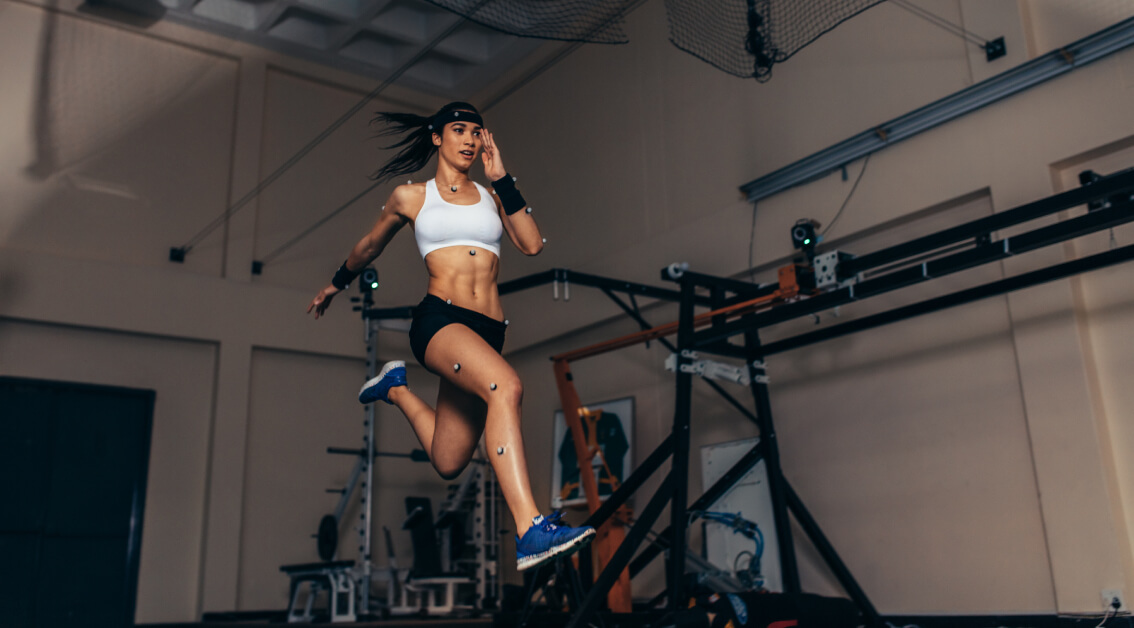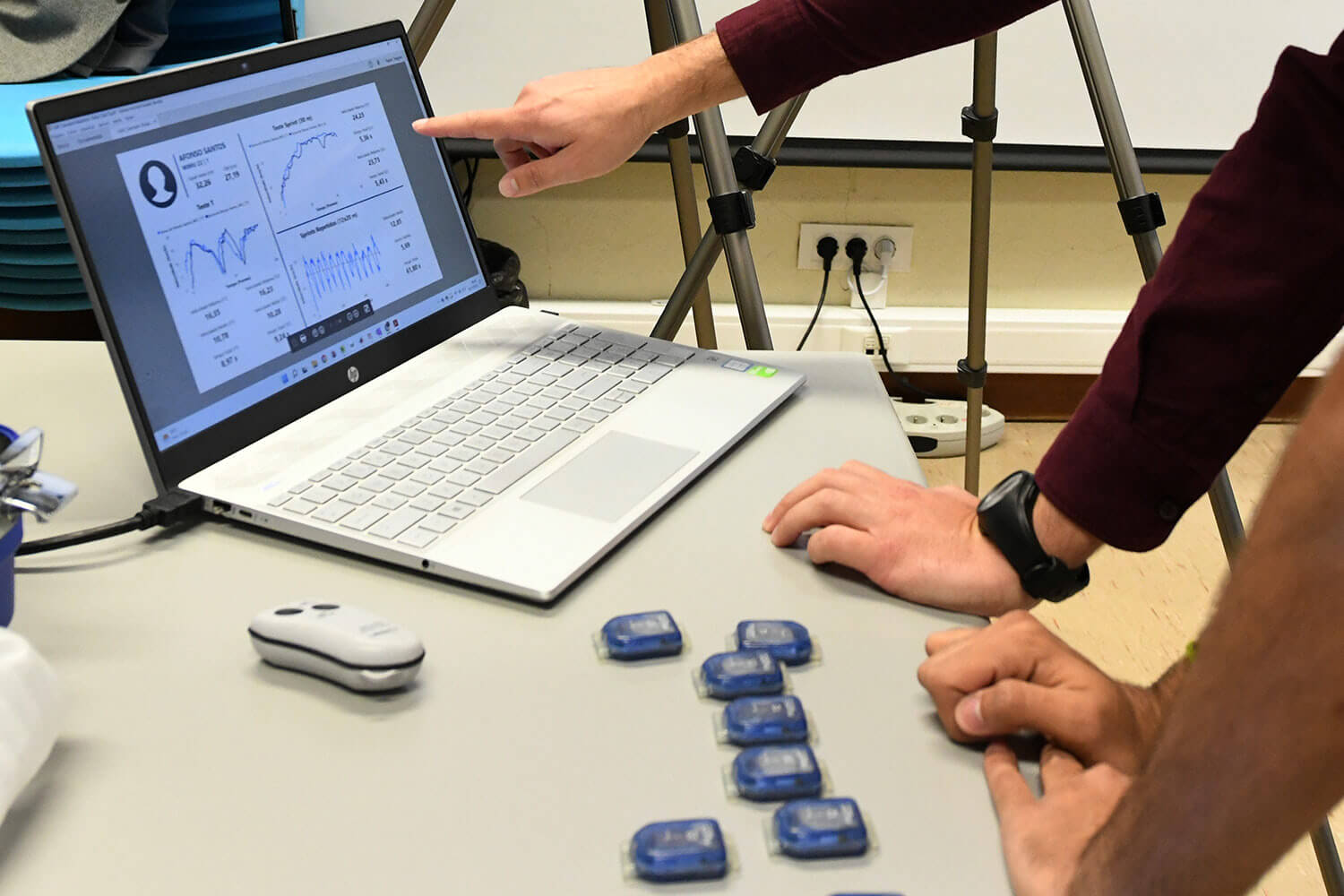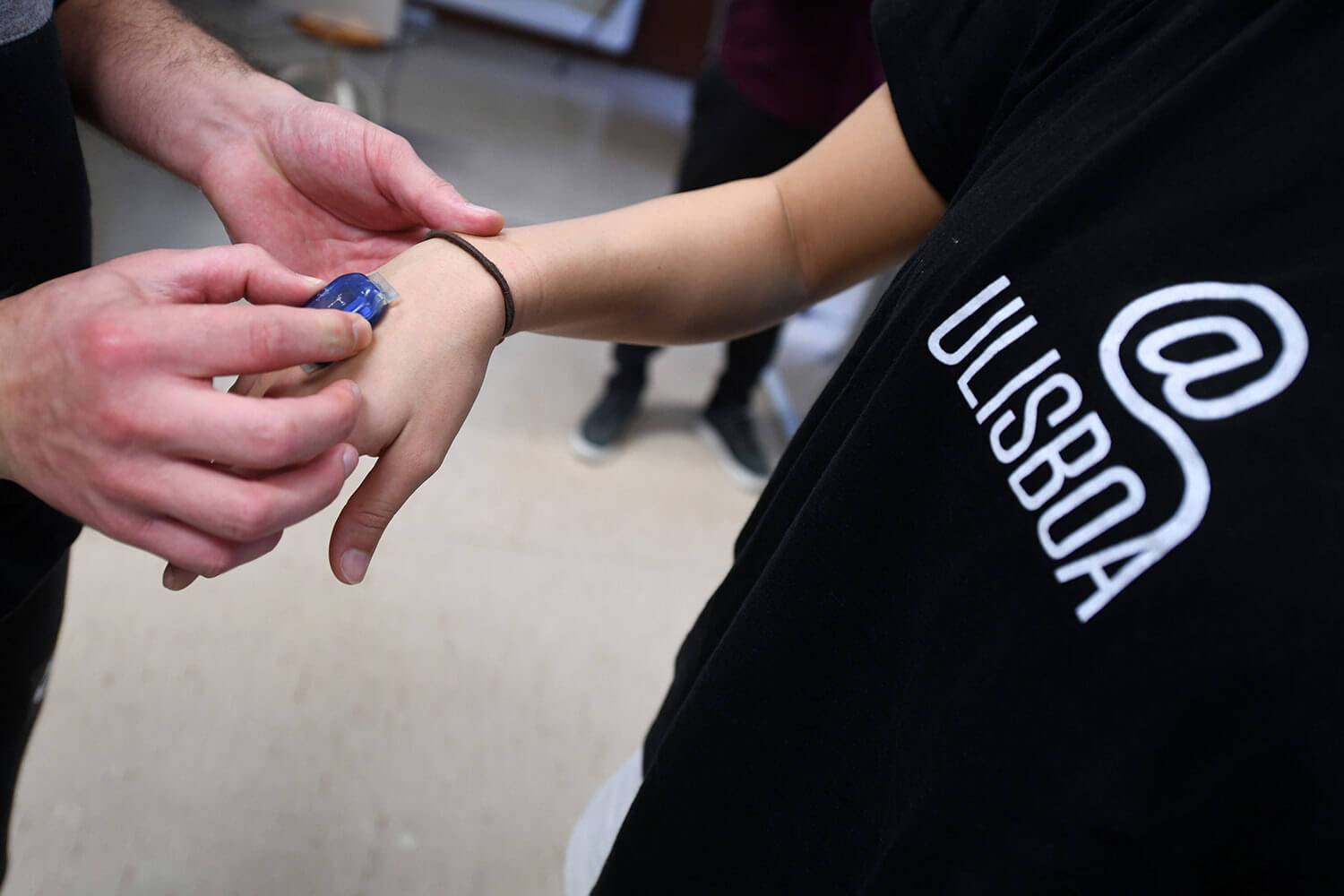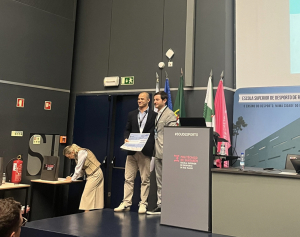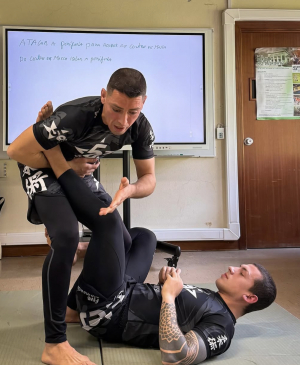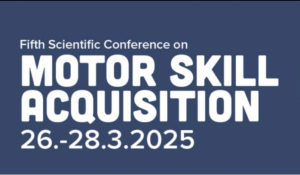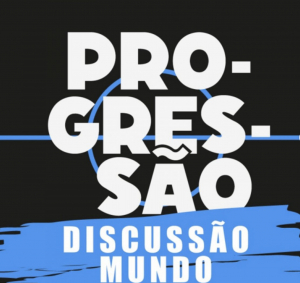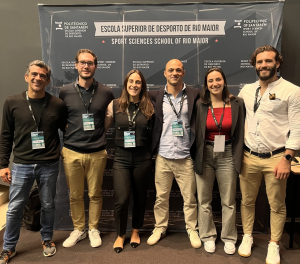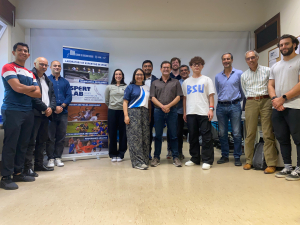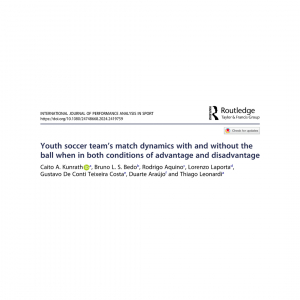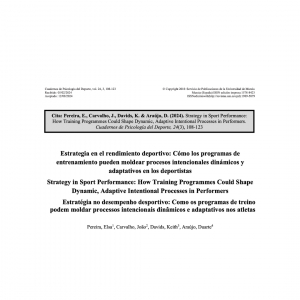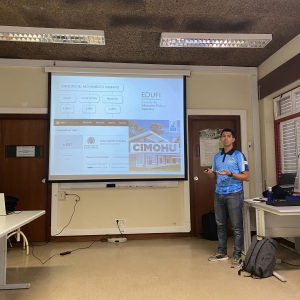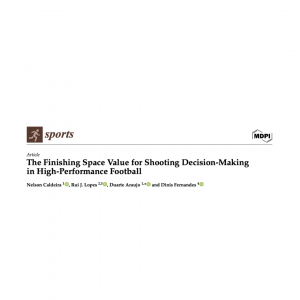Laboratório
Henrique Lopes awarded the Young Researcher Award - António Paula Brito
Henrique Lopes, a researcher at SpertLab and a PhD student at CIPER-FMH, was recently awarded the Young Researcher Award - António Paula Brito, at the XXV Conference of the Portuguese Society of Sports Psychology, held on November 8th and 9th at the Rio Maior Sports School.
This prize was awarded following the presentation of the study "The role of perception-action and affordances for decision-making in judo," which Henrique developed during his Master's Degree in High-Performance Training, supervised by Professor Duarte Araújo.
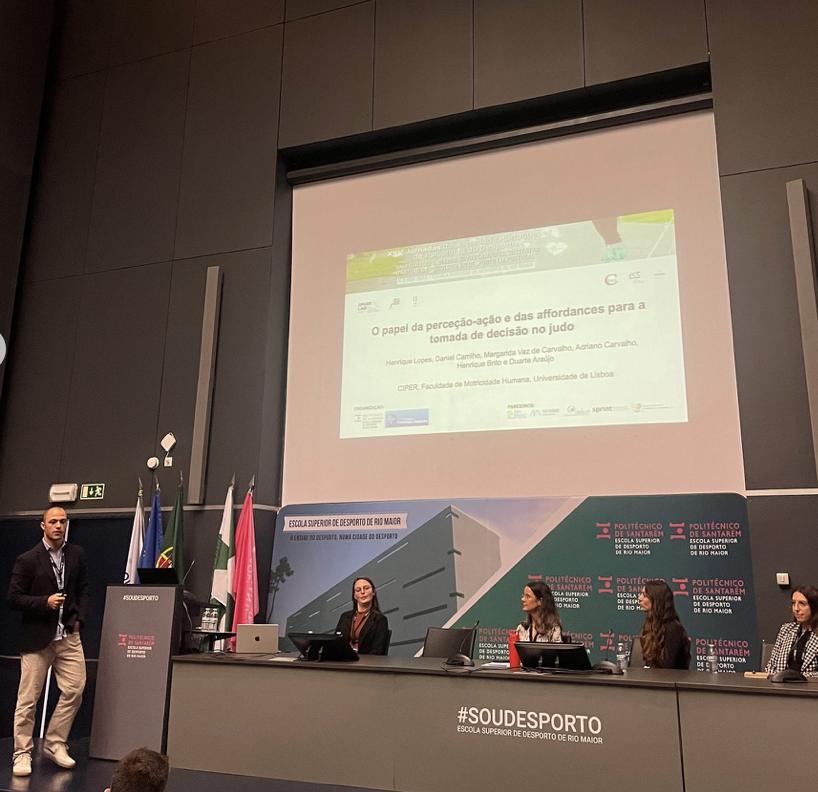
Henrique Lopes' paper presentation was one of 83 communications at the congress, 5 of which applied for the António Paula Brito award. Congratulations!
The conference was attended by psychologists, sports psychologists, physical education teachers, coaches, exercise technicians, sports managers, teachers, researchers from higher education, and students and athletes.
SpertLab received coach Carlos Carvalho
SpertLab received coach Carlos Carvalho on March 13th, to discuss about practice sessions’ design based on the Constraints-Led Approach in Jiu-Jitsu.
Carlos Carvalho leads Five Elements Jiu-Jitsu, guided by the theoretical perspective of Ecological Dynamics.
SpertLab is going to Motor Skill Acquisition conference at Kisakallio in Finland
Last SpertLab meeting was dedicated to presentations for the conference at Kisakallio in Finland, which will take place from March 26th to 28th, 2025.
Adriano Carvalho presented his research on Pre-service routines in tennis - Functional adaptive behavior constrained by the performance environment.
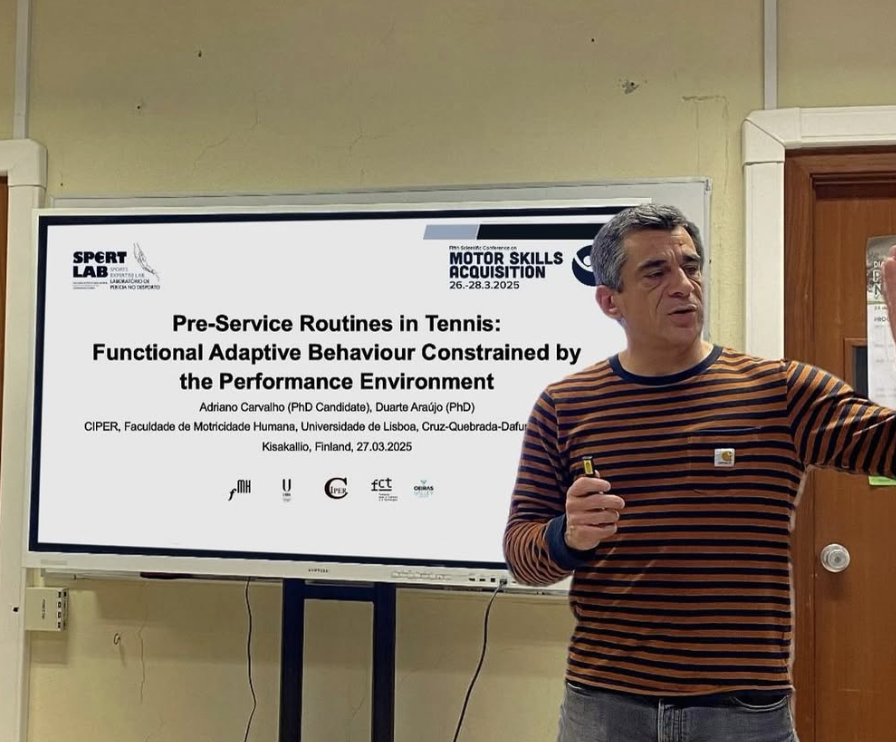
Henrique Lopes presented his experimental study on Decision-making in judo as bifurcations of the fighter-fighter system guided by throwing affordances.
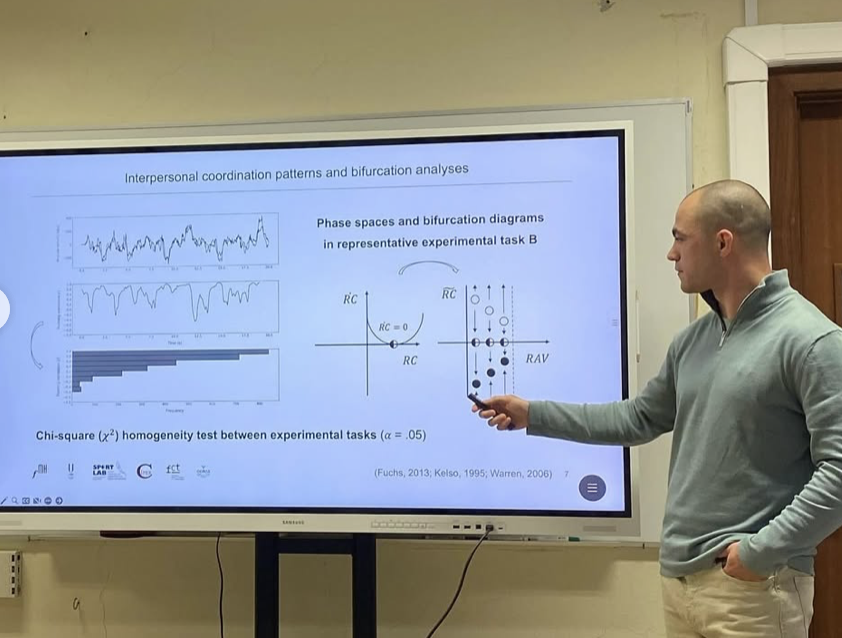
Margarida Carvalho presented her experimental study on Ecological Dynamics of Functional Movement Variability in Single Rope Speed Sprint.
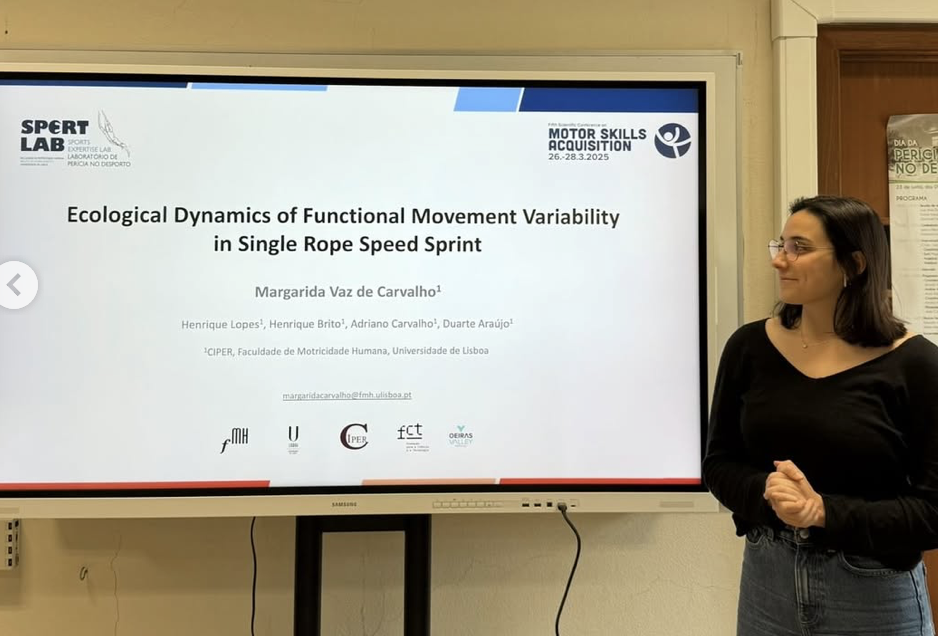
For more information about the conference, check here.
Spertlab’s member Daniel Carrilho at Discussão Mundo
Spertlab’s member Daniel Carrilho at Discussão Mundo
Daniel Carrilho, a football coach, performance analyst, and PhD student at SpertLab, participated in the #135 episode of the Progressão podcast, hosted by Jani Sarajarvi, also SpertLab’s PhD student.
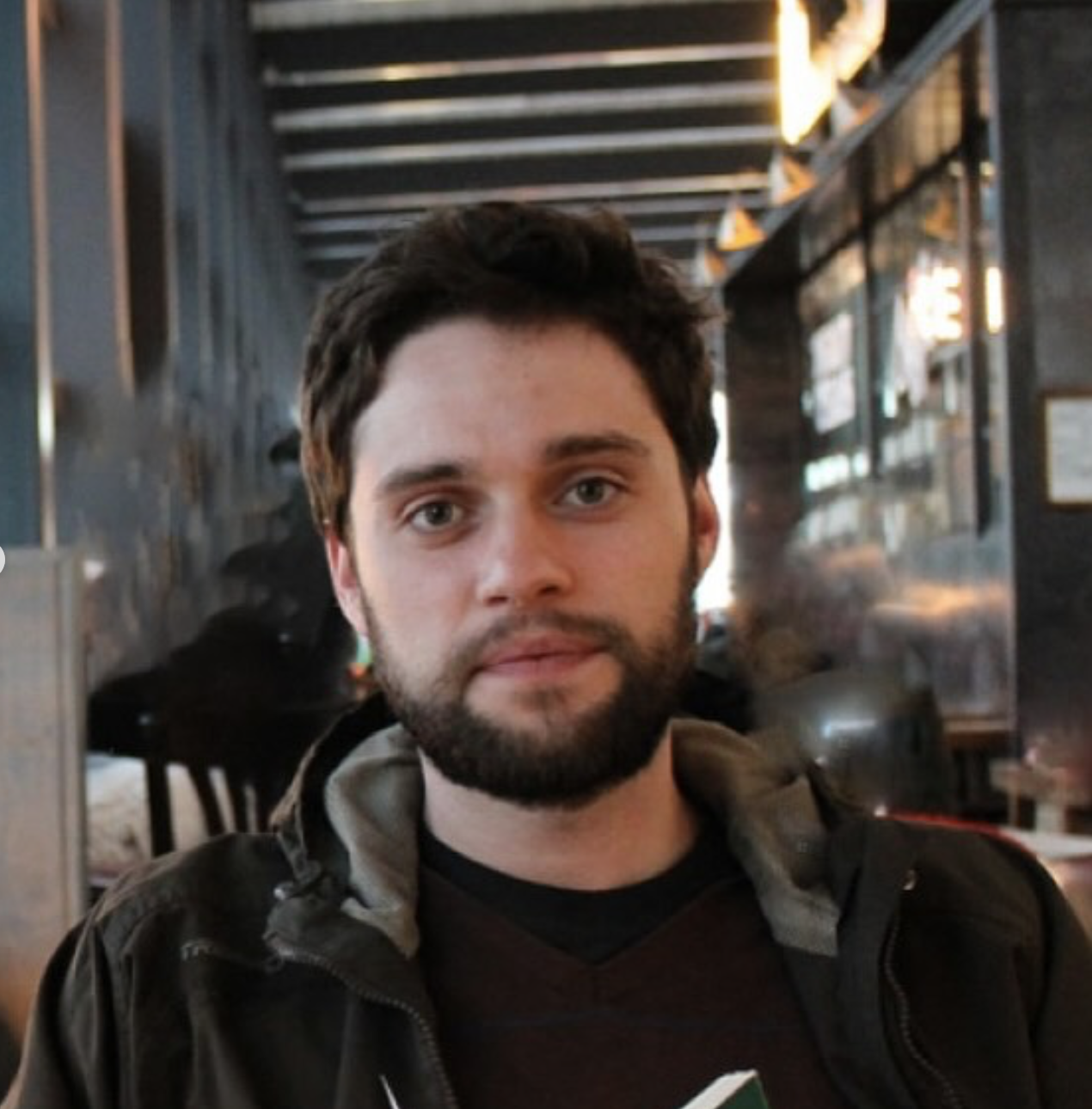
In an in-depth discussion, Daniel explored how an ecological dynamics approach can improve performance analysis in football while addressing questions about game intensity, context, constraints, and cooperation.
Listen at Spotify.
SpertLab attended the XXV Conference of the Portuguese Society of Sports Psychology
On November 8th and 9th, SpertLab attended the XXV Conference of the Portuguese Society of Sports Psychology at the Rio Maior Sports School.
Five researchers from SpertLab and CIPER-FMH actively participated in this nationally renowned event. Adriano Carvalho presented his research on pre-service self-regulation in tennis, Catarina Belchior presented her experimental protocol on meditation for sports performance, Henrique Brito presented his project on the use of virtual reality in sports training, Henrique Lopes presented his experimental study on decision-making in judo, and Margarida Carvalho presented her experimental study on functional variability in Rope Skipping.
Duarte Araújo, director of SpertLab and coordinator of CIPER, was honored as a former president and considered an Honorary Member of the Portuguese Society of Sports Psychology. Congratulations!
Neuroscience Laboratory of the Colombian Olympic Committee visited Spertlab
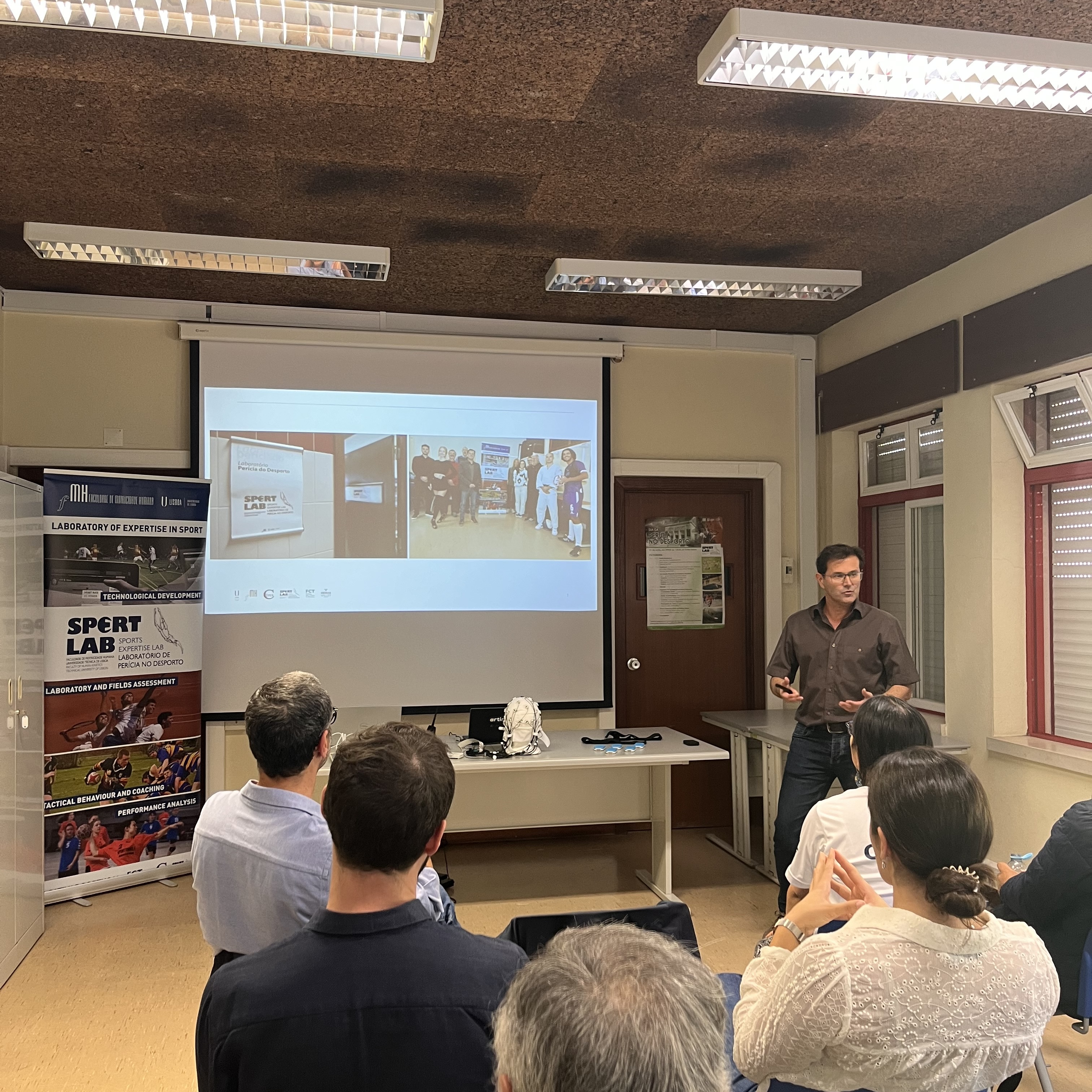
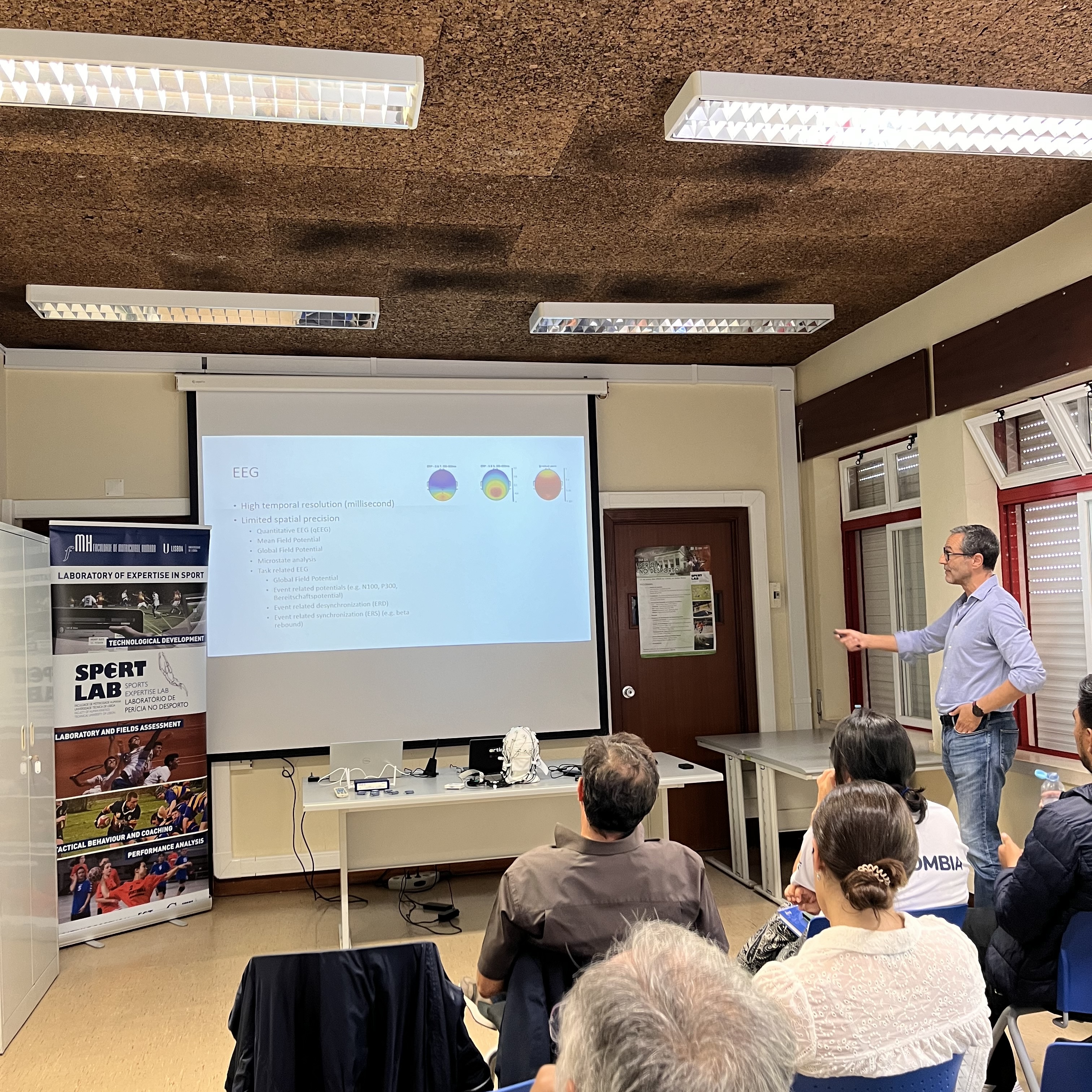
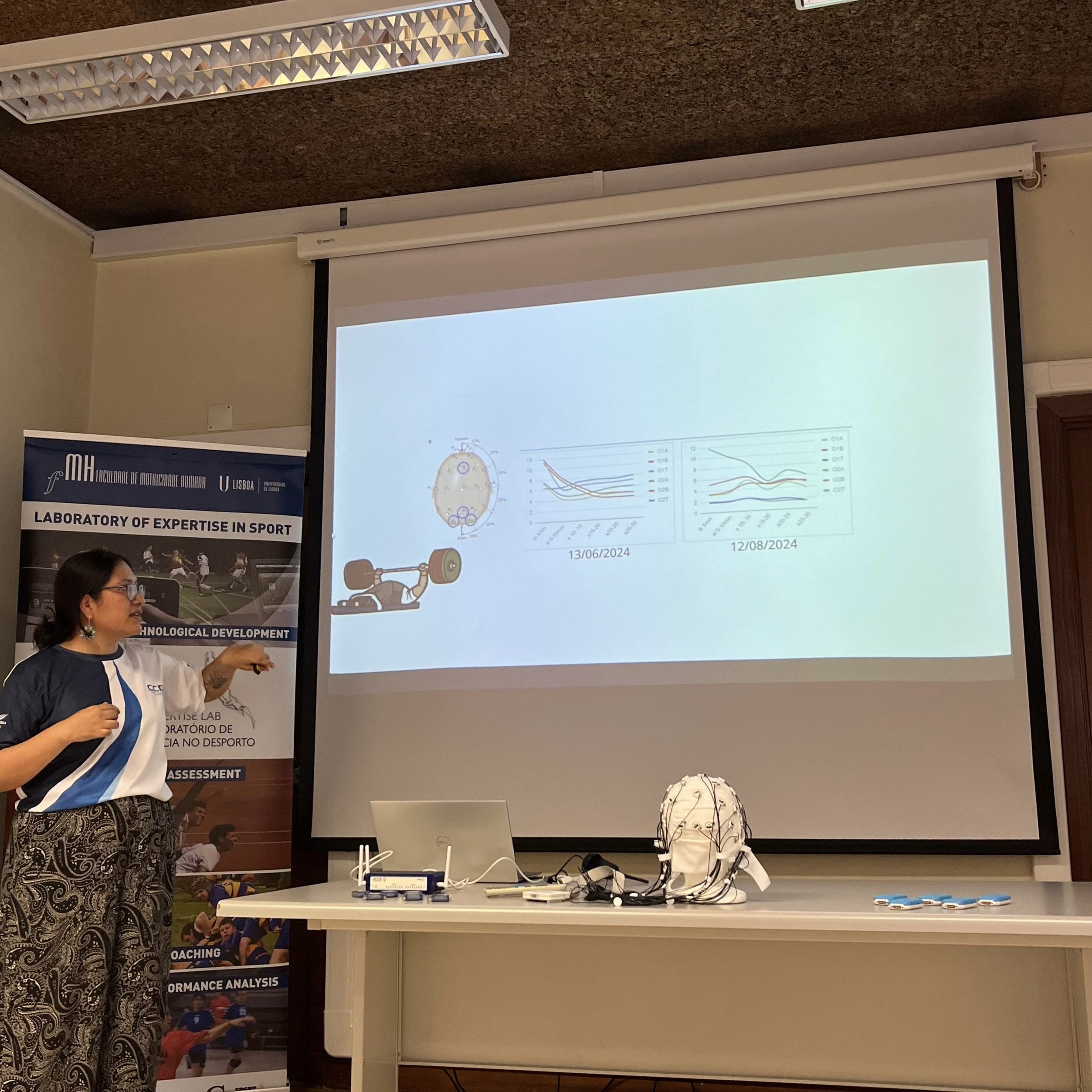
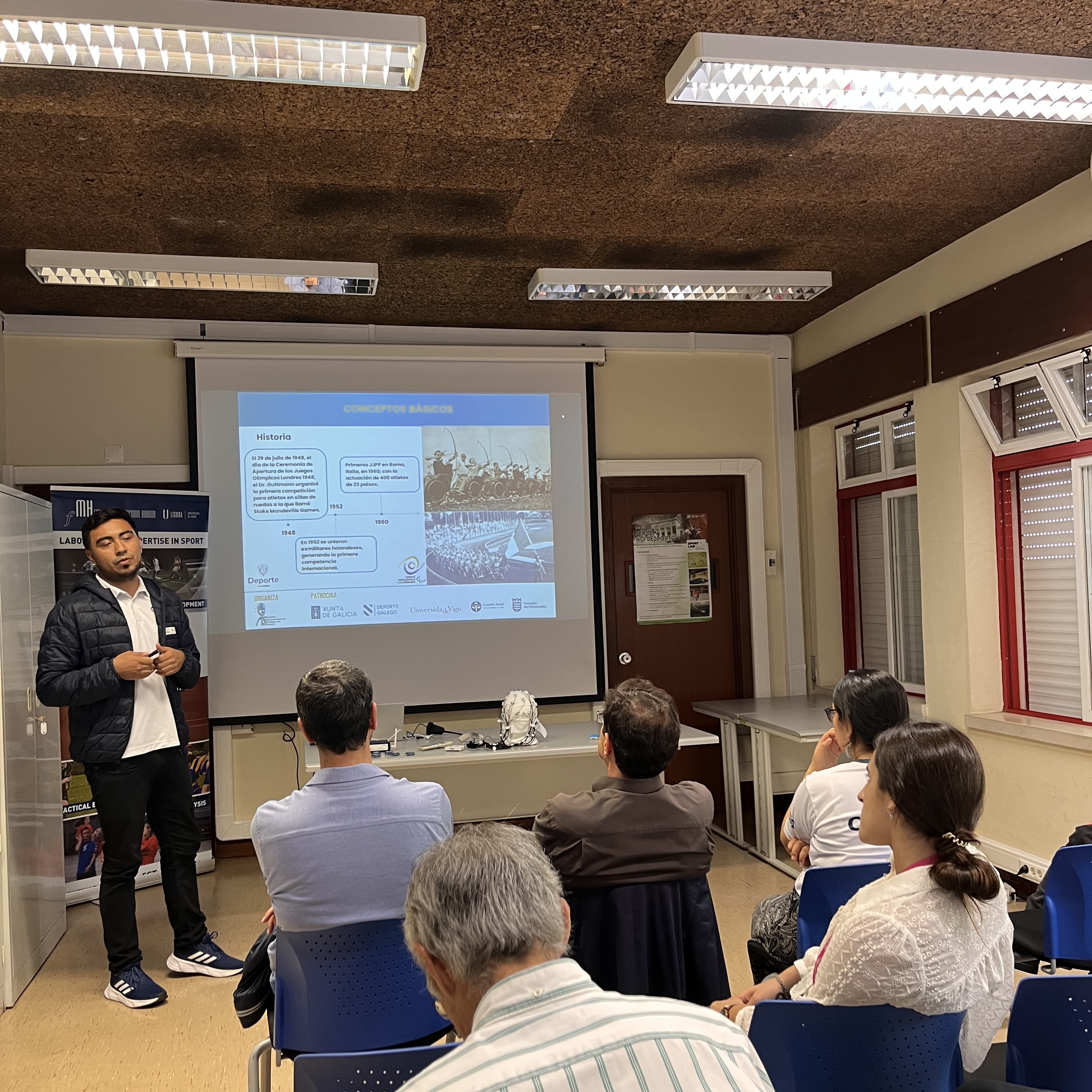
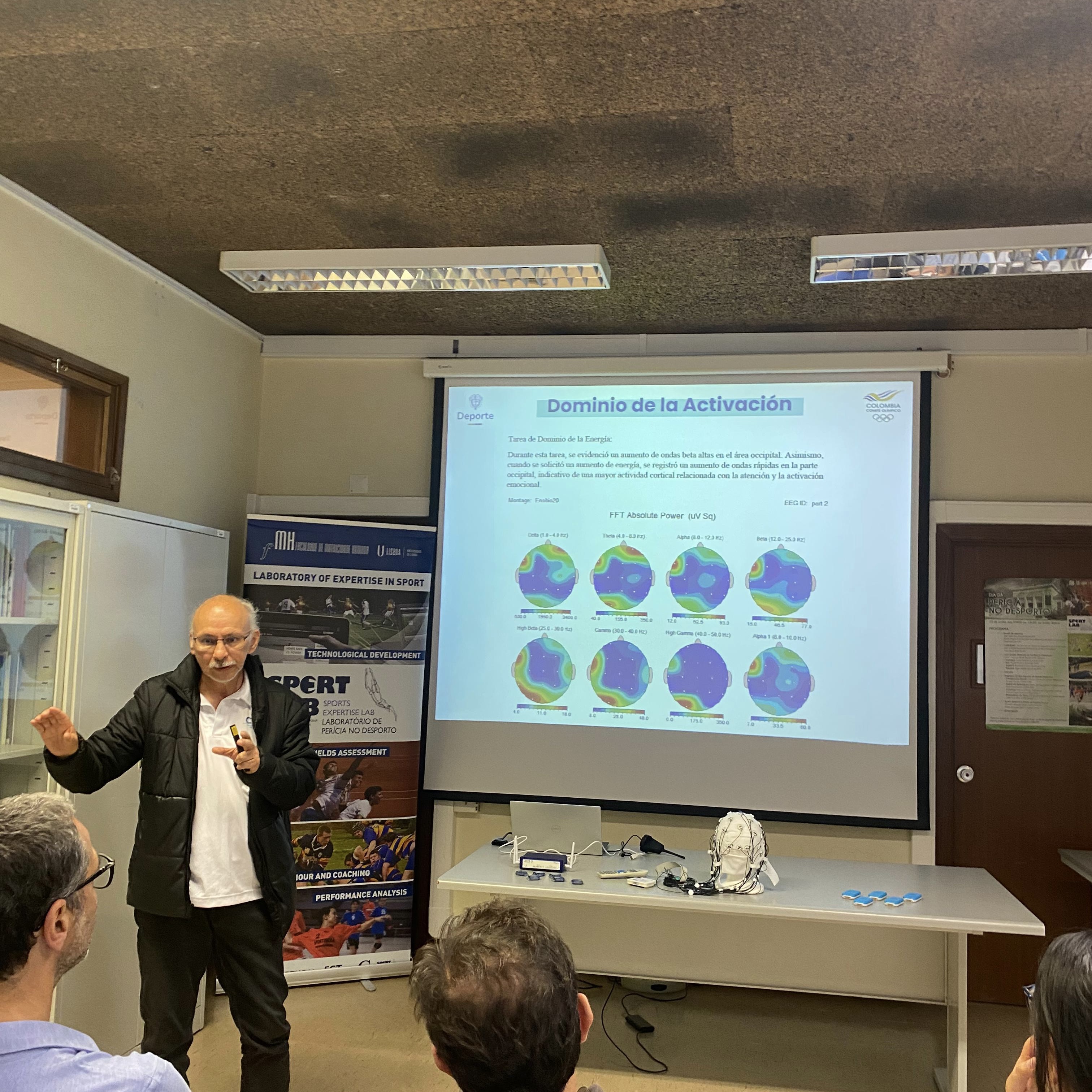
New article "Youth soccer team’s match dynamics with and without the ball when in both conditions of advantage and disadvantage"
New article "Estrategia en el rendimiento deportivo: Cómo los programas de entrenamiento pueden moldear procesos intencionales dinámicos y adaptativos en los deportistas"
Manrique Rodríguez presented his research project at SpertLab
New article "The Finishing Space Value for Shooting Decision-Making in High-Performance Football"






